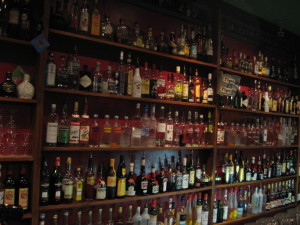
By Cameron Rogers
Eighty-three years after Prohibition was repealed in the United States, Maryland lawmakers have come together to end its lingering impact on election districts.
Under current laws of the state, the sale of alcohol on Election Day is prohibited in certain election districts, such as Ballenger and Catoctin in Frederick County. In addition, licenses to sell alcohol in these districts are unavailable to restaurants and other businesses throughout the year.
With some exceptions, bills in the Maryland Senate and House of Delegates will repeal these restrictions. The bills have seen bipartisan support and support from organizations like the Frederick County Liquor Board.
If passed in both houses and signed by Gov. Larry Hogan, the bills will take effect on July 1 this year. The Liquor Board will not be able to issue licenses before it passes.
“It’ll breeze through,” Sen. Ronald Young, one of the co-sponsors of the bill in the Senate, said. “It already breezed through the Senate. All the governor has to do is sign it.”
The survival of an antiquated law like Prohibition in Maryland could stem from a number of political and social factors.
Kathy Dean, the administrator of the Frederick County Liquor Board, said that the means by which Prohibition was repealed in 1933 may have contributed to its partial existence today in Maryland.
“At that time, people in every election district in every state voted how they wanted to be. In Frederick County, we ended up with six dry districts and four beer-only districts,” she said.
Young shared similar ideas on the law’s obscurity.
“Most people don’t even know they are in a dry district,” he said.
Young also mentioned that alcohol laws are different in every district in Maryland, which may have caused some of the confusion.
Given the relatively-unknown status of the law and the bills to repeal it, it may be difficult to predict how they will impact the state if passed.
On the bills, Young said, “It could have an economic impact, as most restaurants need an alcohol license to survive.”
Dean expressed mixed feelings on the potential impact of the bills.
“In most of the districts, I do not think it will be very much of an impact,” she said. “Most of the areas in question are rural with limited, if any, commercial area that would support such a venture. In some areas, I believe there will be some additional licenses – again, the more populated and the areas with commercial areas such as Middletown, Jefferson, and Myersville.”
Notably, this is not the first attempt to ease restrictions on alcohol in certain districts of Maryland.
According to Dean, there were referendums in the late 1980s and early 1990s to change Middletown and Jefferson from beer-only districts to beer, wine, and liquor districts. However, they did not obtain enough votes to pass, and their alcohol laws remain unchanged up until 2016.
The restrictions on liquor licenses have caused issues for construction projects. In 2015, a proposed hotel in Jefferson Technology Park was delayed, as its plans would place it within one of the dry districts of Frederick.
Young came out in support of repealing the restrictions after this complication came to light.
Dean said that she believed the bills will make the affected districts accurately reflect their current populations and political leanings.
“Realistically, the people who voted on the original districts in 1933 are 100 years old or even more,” Dean said. “The disposition of the districts is not relevant now as it was to the people who voted on it 83 years ago.”